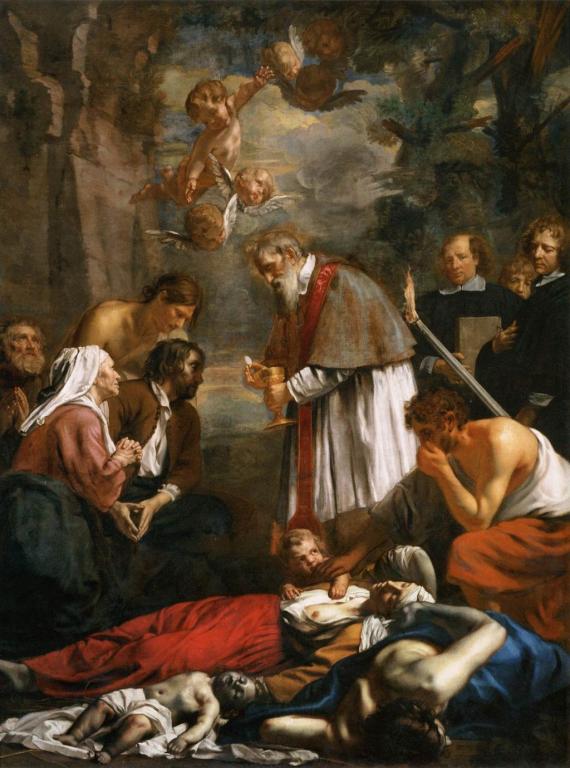Yesterday I blogged about Lyman Stone’s booklet on how churches should deal with the COVID-19 epidemic. He has also published an article entitled Christianity Has Been Handling Epidemics for 2000 Years: Practical theology says care, sacrifice, and community are as vital as ever.
He surveys how churches have handled plagues throughout its history, drawing from that tradition to help us deal with today’s pandemic:
During plague periods in the Roman Empire, Christians made a name for themselves. Historians have suggested that the terrible Antonine Plague of the 2nd century, which might have killed off a quarter of the Roman Empire, led to the spread of Christianity, as Christians cared for the sick and offered an spiritual model whereby plagues were not the work of angry and capricious deities but the product of a broken Creation in revolt against a loving God.
But the more famous epidemic is the Plague of Cyprian, named for a bishop who gave a colorful account of this disease in his sermons. Probably a disease related to Ebola, the Plague of Cyprian helped set off the Crisis of the Third Century in the Roman world. But it did something else, too: It triggered the explosive growth of Christianity. Cyprian’s sermons told Christians not to grieve for plague victims (who live in heaven), but to redouble efforts to care for the living. His fellow bishop Dionysius described how Christians, “Heedless of danger … took charge of the sick, attending to their every need.”
Nor was it just Christians who noted this reaction of Christians to the plague. A century later, the actively pagan Emperor Julian would complain bitterly of how “the Galileans” would care for even non-Christian sick people, while the church historian Pontianus recounts how Christians ensured that “good was done to all men, not merely to the household of faith.” The sociologist and religious demographer Rodney Stark claims that death rates in cities with Christian communities may have been just half that of other cities.
Not only have Christians cared for their neighbors during plague times–Stone also cites the example and words of Luther that we have been blogging about–they also pioneered principles of hygiene to prevent further infections:
The Christian motive for hygiene and sanitation does not arise in self-preservation but in an ethic of service to our neighbor. We wish to care for the afflicted, which first and foremost means not infecting the healthy. Early Christians created the first hospitals in Europe as hygienic places to provide care during times of plague, on the understanding that negligence that spread disease further was, in fact, murder.
The coronavirus leaves over 95 percent of its victims still breathing. But it leaves virtually every member of society afraid, anxious, isolated, alone, and wondering if anyone would even notice if they’re gone. In an increasingly atomized society, the coronavirus could rapidly mutate into an epidemic of despair. Church attendance serves as a societal roll call, especially for older people: Those who don’t show up should be checked on during the week. Bereft of work, school, public gatherings, sports and hobbies, or even the outside world at all, humans do poorly. We need the moral and mental support of communities to be the decent people we all aspire to be.
He sums up what we can learn from the historic church:
Be eager to sacrifice for others, even at the cost of your own life. Obsessively maintain a scrupulous hygienic routine to avoid infecting others. Maintain a lifeline to a meaningful human community that can care for your mind and soul. These are the guiding stars that have shepherded Christians through countless plagues for millennia. As the world belatedly wakes up to the fact that the age of epidemics is not over, these ancient ideas still have modern relevance.














